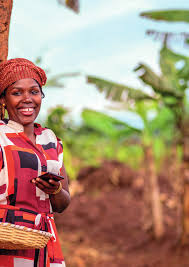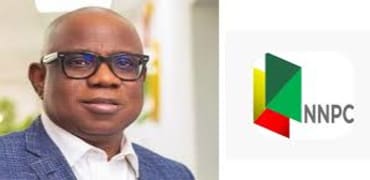How FG Is Quietly Equipping Nigerian Farmers for a Global Export Takeover with 4,633 Seedlings and a $50M Boost
How FG Is Quietly Equipping Nigerian Farmers for a Global Export Takeover with 4,633 Seedlings and a $50M Boost
By Achimi Muktar
In a strategic move to reposition Nigeria’s non-oil economy and empower grassroots farmers, the Nigerian Export Promotion Council (NEPC) has distributed a total of 4,633 hybrid seedlings to farmers across the country—an intervention that may quietly spark a green revolution.
From cocoa-rich soils in Akure to the coffee hills of Plateau, the NEPC’s initiative marks a deliberate step towards enhancing export-oriented agriculture and reducing Nigeria’s dependence on oil revenues.
Speaking during the first quarter progress report on non-oil export performance for 2025, NEPC Director-General Nonye Ayeni detailed how thousands of farmers across states have received carefully selected seedlings to improve yield, boost exports, and expand Nigeria’s footprint in the global agricultural market.
“In Kogi State, we supported farmers with oil palm seedlings to kickstart export-ready production. In Akure, over 2,000 cocoa seedlings were distributed to farmers to prepare for the planting season,” Ayeni announced.
The wave of agricultural empowerment didn’t stop there. In Zamfara State, eight communities benefited from groundnut seedlings for cluster farming, while Bayelsa farmers received 1,500 hybrid cocoa seedlings to tap into one of West Africa’s most valuable crops.
One of the most strategic rollouts occurred in Plateau State, where 1,100 coffee seedlings and 100 bags of organic fertiliser were handed over to 148 farmers in the coffee-producing communities of Chaha and Vom. The aim: to place Nigeria firmly on the specialty coffee export map.
But the seedlings are only part of the bigger picture.
The NEPC has also ramped up efforts to ensure quality compliance and reduce the number of rejected Nigerian goods abroad. “We’ve worked with the International Trade Centre (ITC), Geneva, to validate a baseline study for the sesame and cowpea value chains,” Ayeni said, citing the council’s push to meet international export standards.
Perhaps the most ambitious highlight of Ayeni’s report was the announcement of the Women Exporters in Digital Economy (WEIDE) Fund—a $50 million initiative launched by WTO Director-General Dr. Ngozi Okonjo-Iweala in February 2024. The NEPC, notably the only African agency selected globally, is spearheading this fund’s phase one rollout, which aims to help women-led businesses break into global digital trade.
“This is a rare opportunity. Applications are ongoing, and we urge every woman entrepreneur to tap into this,” Ayeni encouraged.
On the export logistics front, NEPC reported the registration of 1,129 new exporters and the utilization of 16 exit points—including six seaports, three international airports, and seven land borders—to move Nigeria’s non-oil goods to global markets. A staggering 95% of these exports were processed through the nation’s seaports.
The council also emphasized its commitment to deepening partnerships and initiating bold new projects. “Our mission remains clear: increase volume, boost value, enhance market access, and eliminate rejections,” Ayeni affirmed.
With thousands of seedlings now in the hands of local farmers, a $50 million fund supporting digital exports, and a tightening grip on quality control, the NEPC may be planting more than crops—it may be planting the seeds of a new economic future for Nigeria.

















